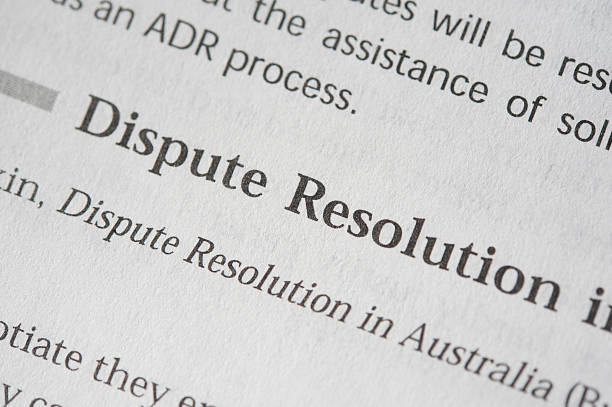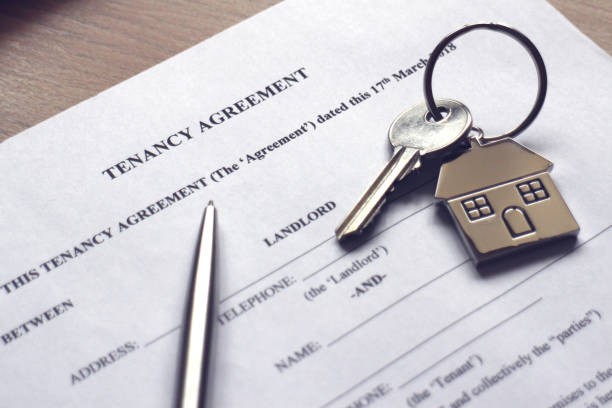Tenancy disputes in NSW are very common and it can be of various types. The terms of the Residential Tenancy Act 2010 sets out all rights and obligations of landowners and tenants in relation to residential tenancy agreements.
As mentioned, tenancy disputes in New South Wales (NSW) can arise for a variety of reasons. This includes:
- rent arrears,
- rental bond disputes,
- property damage,
- breaches of tenancy agreements.
Read more about the types of tenancy disputes in NSW in the section below.
What Are the Types of Tenancy Disputes NSW?
- Rent arrears: Disputes can arise when a tenant falls behind on their rent payments or fails to pay rent. The landowner may seek to terminate the tenancy. They may take legal action to recover the rent owed if rent remains unpaid.
- Property damage: If a tenant damages the rental property, the landowner may seek compensation. This could be for repairs or replacement of damaged items. The tenant may dispute the extent of the damage or the cost of repairs.
- Breach of residential tenancy agreement: A tenancy agreement sets out the terms and conditions of the tenancy. This includes the responsibilities of the tenant and the landowner. If one party breaches the agreement, it can result in a dispute.
- Bond disputes: The bond is a security deposit paid by the tenant at the start of the tenancy. At the end of the tenancy, the bond may be disputed if the landowner believes that the tenant has caused damage to the property or owes rent.
- Eviction: A landowner may seek to terminate a tenancy and evict a tenant for various reasons. This includes the non-payment of rent, breach of tenancy agreement, or if the landowner wants to sell the property. They can give a termination notice.
- Maintenance and repairs: The landowner has a responsibility to ensure that the rental property is maintained in a reasonable condition, while the tenant is responsible for keeping the property clean and tidy. Disputes can arise if either party fails to meet their obligations.
NSW Fair Trading and NSW Civil and Administrative Tribunal
Prior to January 2014, the Consumer, Trader and Tenancy Tribunal was responsible for handling disputes related to the Residential Tenancies Act 2010. However, after that date, these disputes were transferred to the NSW Civil and Administrative Tribunal (NCAT). To initiate a complaint, one must complete the appropriate forms.
While NSW Fair Trading provides a tenancy complaint service for both landowners and tenants involved in residential tenancies in NSW, its use is voluntary and subject to certain circumstances. NSW Fair Trading can provide support in resolving minor tenancy disputes, but matters related to public or social housing, or disputes of a more serious nature, are handled by a NSW Civil and Administrative Tribunal member.
How to Resolve Tenancy Disputes in NSW?
It’s essential to understand your rights and obligations as a tenant or landlord in NSW and how to resolve disputes if they occur. The first step in resolving a tenancy dispute is to communicate with the other party. Often, disputes arise due to misunderstandings or miscommunications that can be resolved through discussion.
If you are unable to resolve the dispute through communication, the next step is to seek mediation. Mediation is a process where an independent third party helps you and the other party to reach an agreement. The NSW Civil and Administrative Tribunal (NCAT) offers a free mediation service for tenancy disputes.
If mediation fails, you can apply to the NCAT for a hearing. The NCAT has the power to make orders for various tenancy disputes, including termination of the tenancy, rent arrears, and compensation for property damage. It’s important to note that there are time limits for making an application to the NCAT for some types of disputes, so it’s essential to seek legal advice as soon as possible.
Tenants and landowners in NSW have certain rights and obligations under the Residential Tenancies Act 2010. For example, tenants have the right to a safe and habitable property, while landowners have the right to receive rent on time and have their property maintained in a reasonable condition. It’s crucial to understand these rights and obligations to avoid disputes and to know how to handle them if they arise.
In conclusion, tenancy disputes in NSW can be resolved through communication, mediation, or through the NCAT. It’s crucial to understand your rights and obligations as a tenant or landowner, and seek legal advice if necessary. By following the correct procedures, you can resolve tenancy disputes fairly and efficiently.

Seeking Advice from Civil Lawyers
Lawyers can assist with tenancy disputes in Australia in several ways. They can provide legal advice and representation to tenants and landowners involved in disputes, negotiate on behalf of their clients to resolve disputes outside of court, and prepare legal documents such as applications, notices, and court pleadings.
Lawyers can also represent their clients in court proceedings, including filing and defending claims, attending mediation sessions, and representing their clients at trial. Additionally, lawyers can assist in enforcing court orders and judgment. They provide valuable legal expertise and support in navigating the complex legal landscape of tenancy disputes in Australia.
If you are a tenant or a landowner and are facing disputes, speak to our lawyers for obtaining tailored advice for your matter. At JB Solicitors, our civil litigation lawyers can help resolve issues and help you release your legal rights. We can provide tailored advice for your dispute related matters.
For more information, do not hesitate to contact our team of lawyers today.
